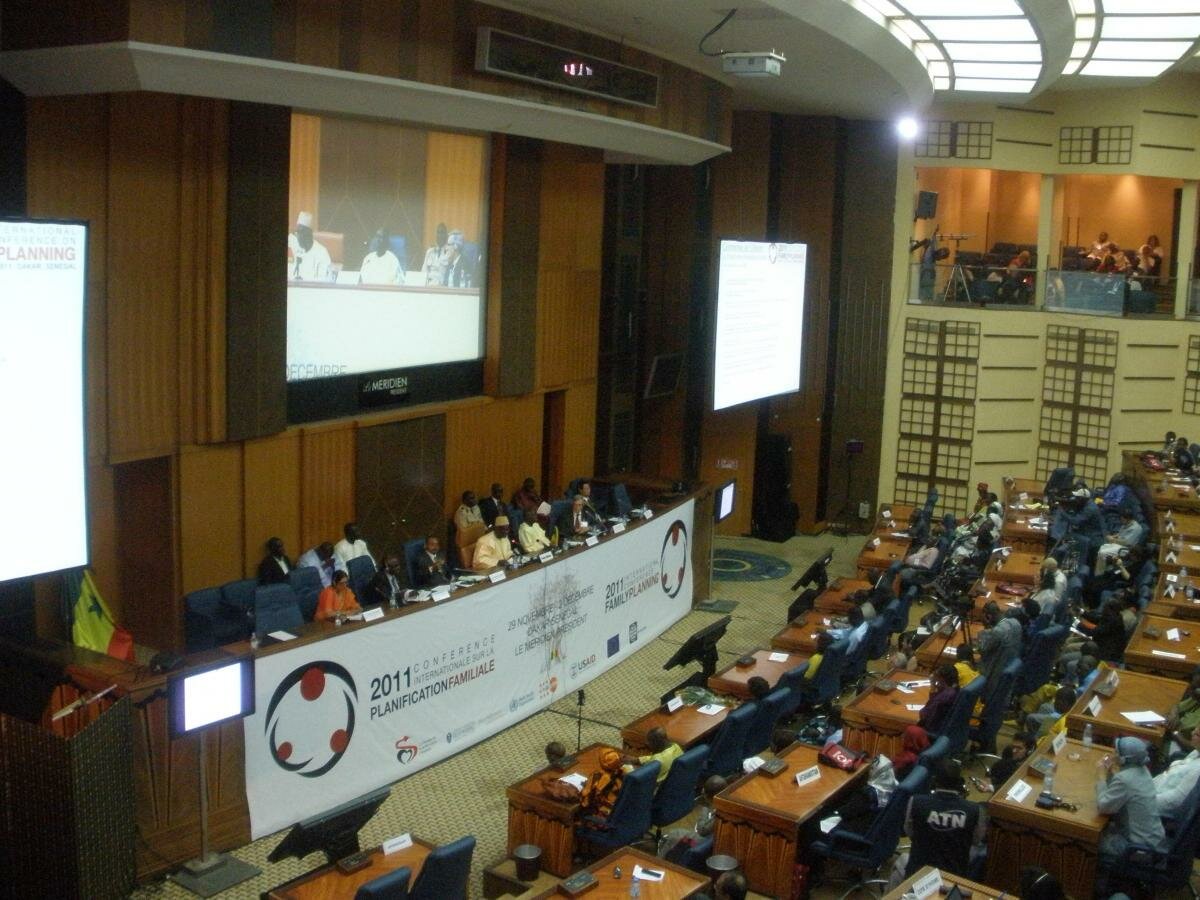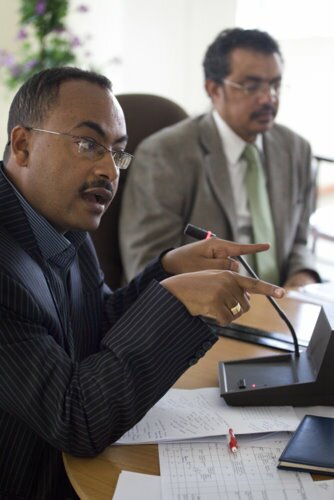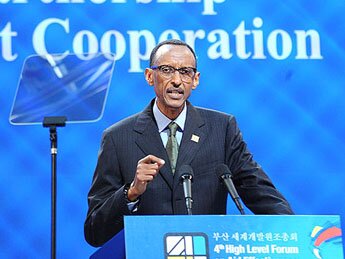December 02, 2011
Sarah Lindsay
 At the closing plenary of the International Conference on Family Planning, State Health Minister Kesetebirhan Admassu of Ethiopia calls for more country ownership of health programs. One of the benefits, he said, was much stronger family planning programs. Sarah Lindsay reports.
At the closing plenary of the International Conference on Family Planning, State Health Minister Kesetebirhan Admassu of Ethiopia calls for more country ownership of health programs. One of the benefits, he said, was much stronger family planning programs. Sarah Lindsay reports.
State Minister Kesetebirhan Admassu, of Ethiopia’s Federal Ministry of Health, wanted to send a message to African governments at the closing plenary of the International Conference on Family Planning:
“We need to say ‘no’ to donors and projects that are not aligned with national plans,” Minister Keseste, as he is commonly known, said. “One of the problems in Africa is that governments do not show strong leadership and do not guide donors in their countries.”
READ MORE »

 Leading Global Health will be on hiatus until the New Year. Until then, here’s what we’ve been keeping up with in the news.
Leading Global Health will be on hiatus until the New Year. Until then, here’s what we’ve been keeping up with in the news.
 At the end of November, world leaders gathered in Busan, Korea to discuss progress on the implementation of the Paris Declaration and the integration of aid effectiveness into the development agenda.
At the end of November, world leaders gathered in Busan, Korea to discuss progress on the implementation of the Paris Declaration and the integration of aid effectiveness into the development agenda.